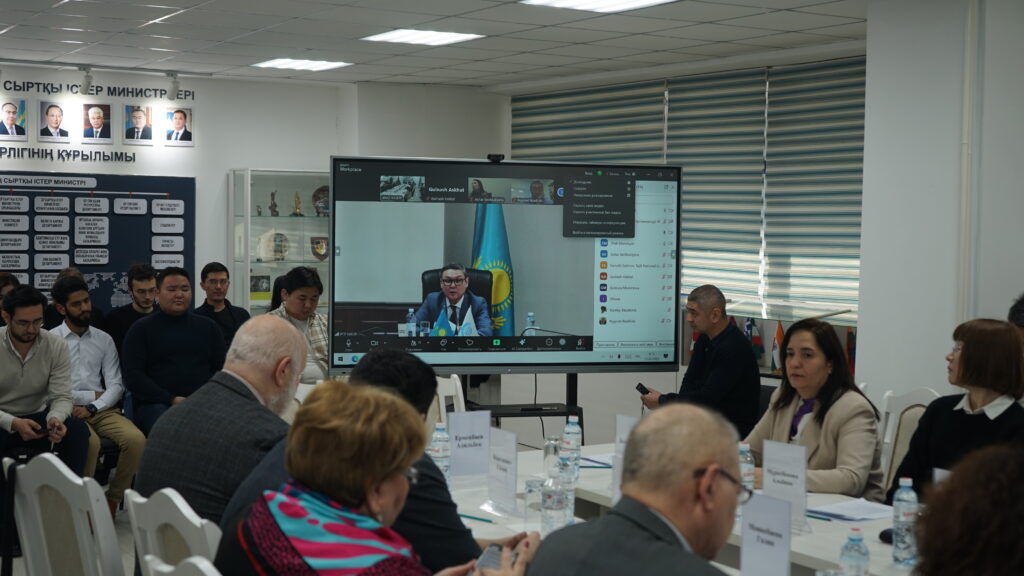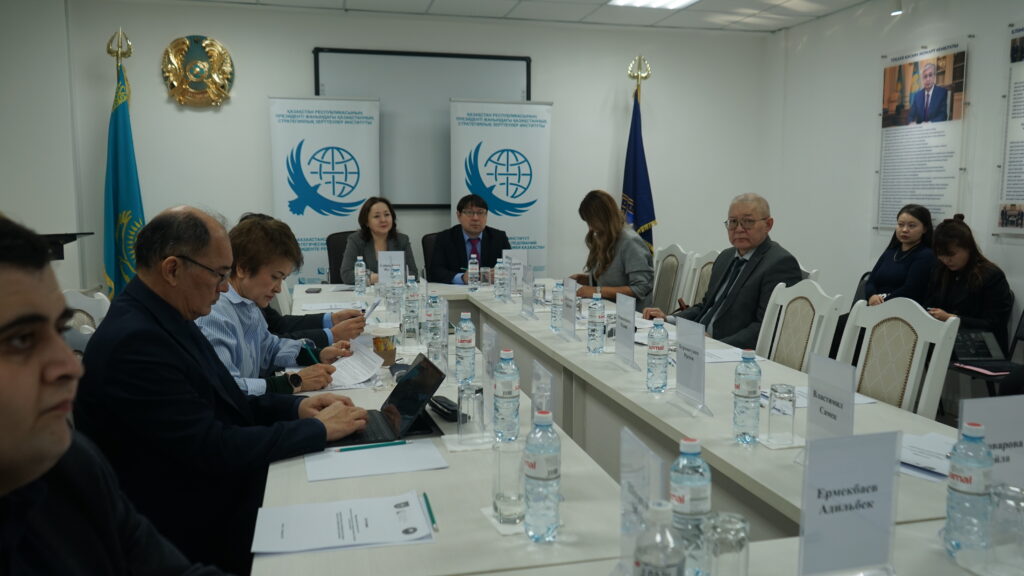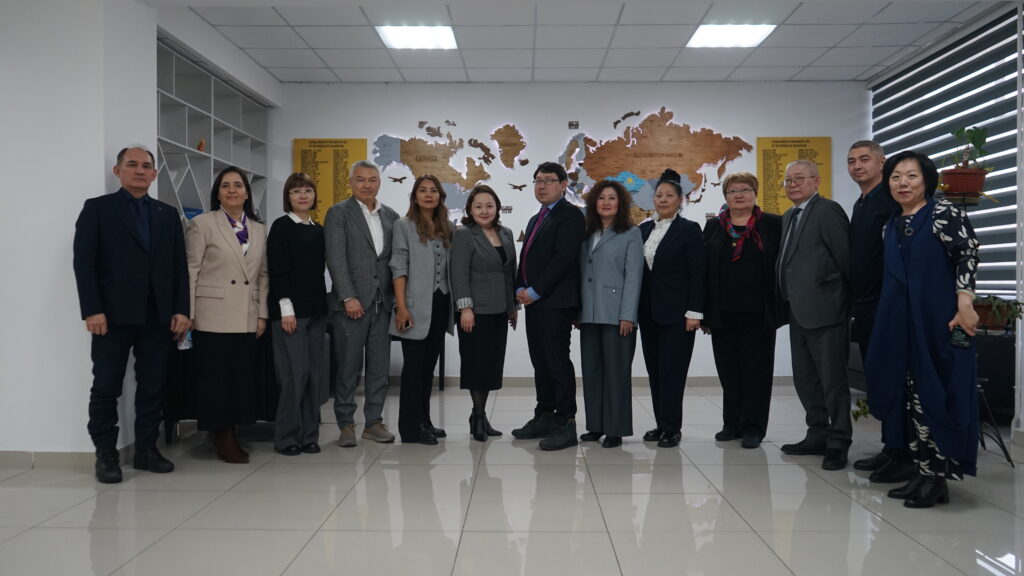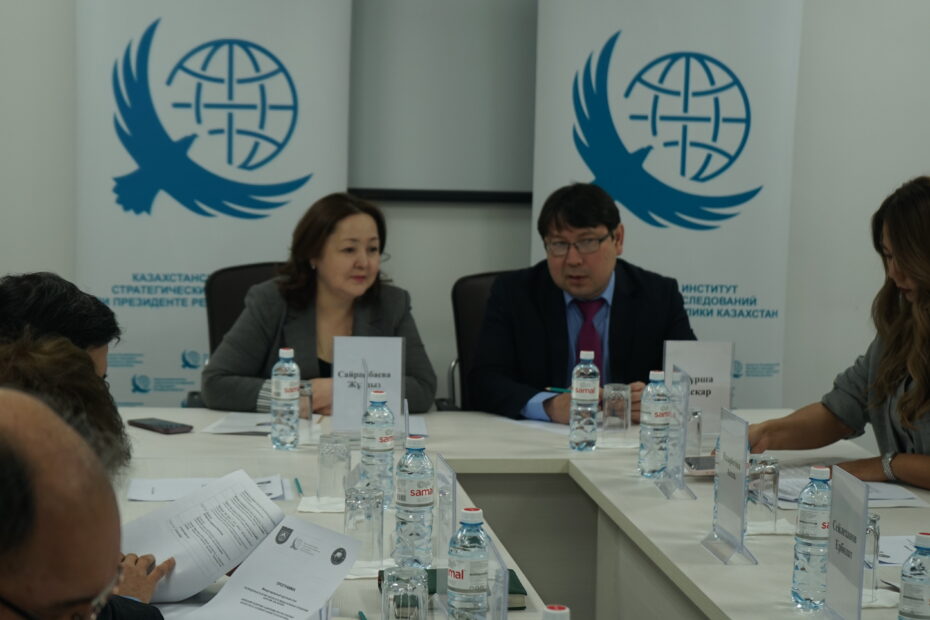On February 11, 2025, the Kazakhstan Institute for Strategic Studies under the President of the Republic of Kazakhstan (KazISS), together with the Faculty of International Relations of Al-Farabi Kazakh National University (KazNU), held an international roundtable dedicated to the 30th anniversary of the faculty.
The event, titled “Foreign Policy and Diplomacy of the Republic of Kazakhstan in the Context of the New Geopolitical Reality,” set the agenda for discussions, focusing on current challenges facing Kazakhstan’s foreign policy. The roundtable gathered leading Kazakhstani and international scholars, diplomats, and representatives of the expert-analytical community.
Welcoming the participants, KazISS Director Yerkin Tukumov emphasized that the 30th anniversary of KazNU’s Faculty of International Relations is not just a milestone for an academic institution but a significant event in the development of Kazakhstan’s diplomatic and analytical school.
“Over the past three decades, the faculty has become a true training ground for diplomacy, politics, science, and business. Without a doubt, these achievements would not have been possible without the dedicated work of the faculty’s professors,” Tukumov noted.
He recalled the long-standing partnership between KazISS and the Faculty of International Relations, which has been marked by joint research projects, analytical studies, expert discussions, and educational initiatives.
“KazISS and the faculty work together on analytical projects, conduct research, organize events, exchange expert opinions, and train new generations of international affairs specialists. Many of our institute’s employees are involved in the faculty’s educational process, and its graduates strengthen KazISS’s team. One of our distinguished colleagues, the late Murat Turarovich Laumulin, made a significant contribution to the development of both our institute and the Faculty of International Relations,” Tukumov stated.
Dean of the Faculty of International Relations at KazNU, Zhuldyz Sayrambayeva, emphasized that over its 30-year history, the faculty has established itself not only as a leading educational institution for training high-level professionals but also as an important analytical hub that shapes new ideas and approaches in Kazakhstan’s foreign policy.
“Our long-term collaboration with KazISS is of great importance, as it plays a crucial role in shaping the country’s foreign policy strategy. Joint projects and academic research conducted by KazISS and the faculty allow for a deeper analysis of international relations and global events. This partnership significantly contributes to the training of a new generation of international affairs specialists, analysts, diplomats, and researchers,” said Sayrambayeva.
The roundtable was attended by key representatives from diplomatic and international organizations, including Almasha Arenova, Head of the Political Cooperation Department of the Ministry of Foreign Affairs of the Republic of Kazakhstan in Almaty; Vlastimil Samek, Representative of the United Nations Department of Global Communications in Almaty; and Askar Nursha, Deputy Director of KazISS.
During the event, participants discussed Kazakhstan’s foreign policy in the evolving global order, the dynamics of bilateral cooperation with partners in Central Asia, Eurasia, Europe, and the U.S., the role of global transport and connectivity in shaping the country’s foreign policy, as well as the impact of science and education on regional integration processes in Central Asia.
As noted by roundtable participants, in today’s changing geopolitical landscape and transformation of the international system, Kazakhstan’s traditional multi-vector foreign policy—based on pragmatism and balancing interests—faces the challenge of adapting to new risks and uncertainties. The global agenda shift calls for an updated foreign policy strategy and diplomatic adaptation for an independent Kazakhstan.
Experts stressed that in these complex international conditions, it is essential for Kazakhstan not only to maintain its position in global politics but also to strengthen its status as a middle power by engaging in multilateral diplomacy with global and regional powers, strengthening partnerships with neighboring countries, and maintaining a strategic balance in foreign relations.
A special focus of the roundtable was on enhancing academic and expert collaboration between KazISS and KazNU, particularly in developing innovative approaches to training high-level specialists in diplomacy and international relations, formulating strategic recommendations for Kazakhstan’s foreign policy, and expanding analytical cooperation to address global and regional challenges.
As experts emphasized, the past 30 years have demonstrated the importance of expert diplomacy and analytical work in shaping Kazakhstan’s foreign policy strategy. The roundtable participants concluded that Kazakhstan’s foreign policy must continue evolving to address emerging global challenges while maintaining its commitment to diplomacy, stability, and balanced international engagement. Strengthening the academic-expert partnership between KazISS and KazNU will play a crucial role in training future diplomats, analysts, and policymakers who will shape the country’s foreign policy strategy in the years ahead.





